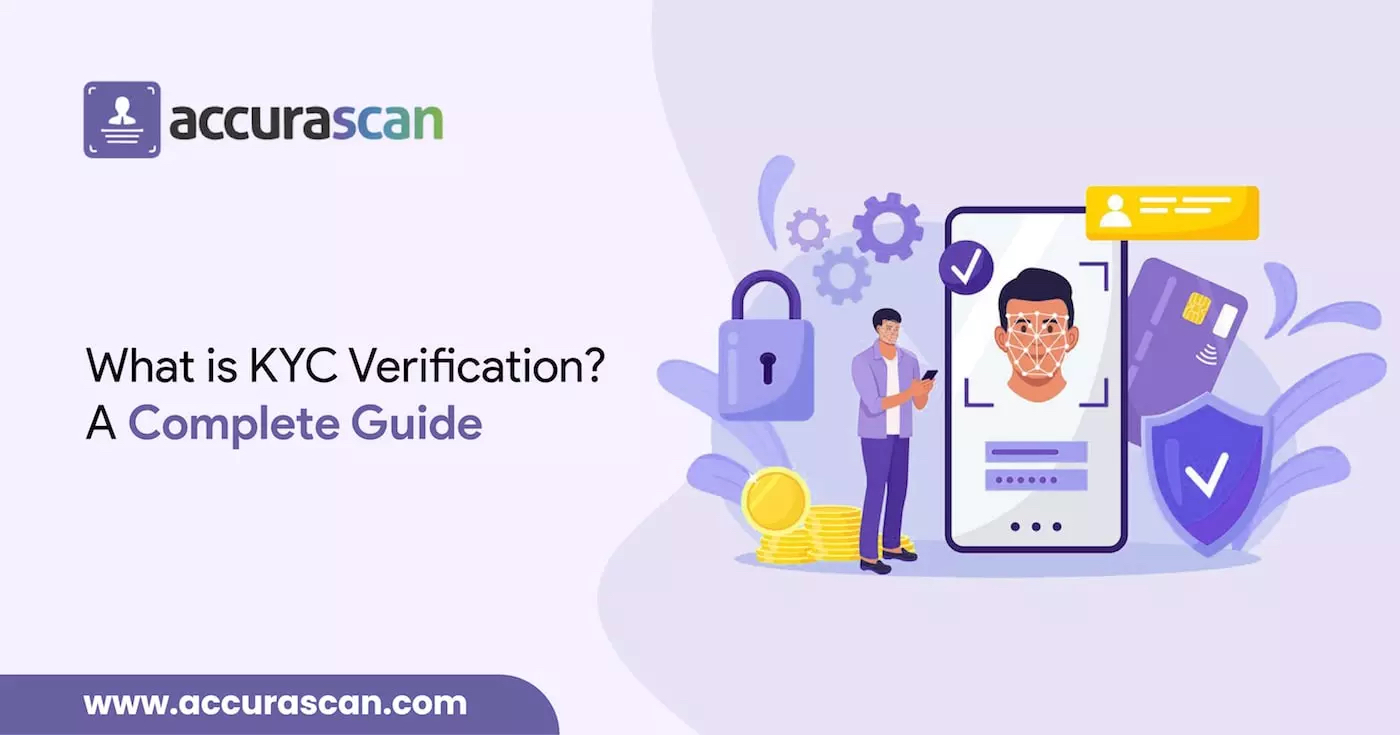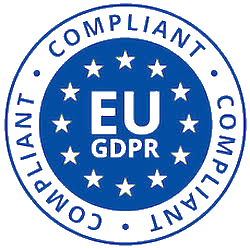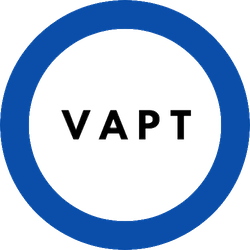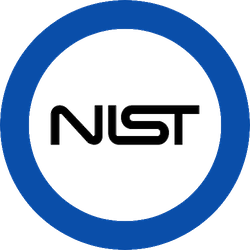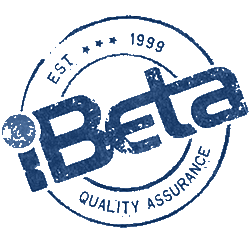KYC verification, or Know Your Customer verification, is the process of verifying the identity and credentials of a customer or a potential customer before or during the start of a business relationship. KYC verification is essential for many industries, especially for financial institutions, fintech companies, e-commerce platforms, and online service providers, to comply with the regulatory requirements, prevent fraud, spoofing attack, money laundering, identity theft, and enhance customer trust and loyalty.
We will explain how the KYC verification process works, the benefits of KYC verification services, the types of KYC, and why KYC verification is important for the fintech industry. We will also introduce you to Accura Scan, a leading KYC solutions provider that offers a complete and comprehensive suite of global digital KYC, identity verification, and customer onboarding solutions.
How does KYC Verification Process work?
The KYC verification process typically involves three steps: identification, verification, and authentication.
- Identification: The customer provides their personal information, such as name, date of birth, address, phone number, email address, etc., and submits a proof of identity document, such as a passport, driver’s license, national ID card, etc., to the service provider. The service provider collects and stores the customer’s information and document in a secure database.
- Verification: The service provider verifies the customer’s information and document against various sources, such as government databases, credit bureaus, sanction lists, watchlists, etc., to ensure that the customer is who they claim to be and that they are not involved in any illegal or suspicious activities. The service provider also checks the validity and quality of the document to detect any signs of tampering or forgery.
- Authentication: The service provider authenticates the customer’s identity by asking them to perform a biometric verification, such as face recognition, fingerprint scanning, iris scanning, voice recognition, etc., or a liveness detection test, such as blinking, smiling, nodding, etc., to confirm that the customer is a real and live person and not a fraudster using a stolen or fake document or identity.
The KYC verification process can be done either manually or automatically. Manual KYC verification involves human agents who review and verify the customer’s information and document it manually. This process can be time-consuming, costly, error-prone, and inconsistent. Automatic KYC verification involves artificial intelligence (AI) and machine learning (ML) algorithms that can scan, extract, verify, and authenticate the customer’s information adocumentsent in a matter of seconds. This process can be fast, accurate, efficient, and consistent.
Benefits of KYC Verification Service
KYC verification services can provide many benefits for the client as well as their users/customers. Some of the benefits are:
- Compliance: KYC verification services can help the client comply with the regulatory requirements and standards imposed by various authorities and agencies around the world. For example,
- The Financial Action Task Force (FATF), an intergovernmental organization that sets global standards for combating money laundering and terrorist financing
- The European Union’s General Data Protection Regulation (GDPR), which regulates how personal data of individuals in the EU is collected, processed, stored, transferred, and protected,
- The Payment Services Directive 2 (PSD2), which aims to enhance consumer protection, promote innovation, and improve the security of payment services in the EU.
- The Anti-Money Laundering Directive 5 (AMLD5), which expands the scope of KYC obligations for financial institutions, fintech companies, crypto exchanges, e-wallets, prepaid cards, etc., in the EU.
- Security: KYC verification service can help the client prevent fraud, money laundering, identity theft, and other criminal activities by verifying the identity and credentials of their customers and potential customers. By using advanced technologies such as AI, ML, optical character recognition (OCR), biometric verification, liveness detection, etc., KYC verification services can detect and prevent any attempts to use stolen or fake documents or identities by fraudsters.
- Trust: KYC verification services can help the clients enhance customer trust and loyalty by demonstrating their commitment to protect their customers’ personal data and financial transactions. By using KYC verification service, the service providers can also reduce the risk of reputational damage, legal liability, and regulatory penalties that may arise from any compliance breaches or security incidents.
- Convenience: KYC verification services can help the customers enjoy a convenient and seamless experience when accessing various online services and platforms. By using the KYC verification service, customers can avoid the hassle of filling out lengthy forms, submitting multiple documents, or visiting physical branches or offices. Instead, they can complete the KYC verification process online, anytime, anywhere, and on any device.
What are the types of KYC?
There are different types of KYC that can be performed depending on the level of risk and the nature of the business relationship. Some of the common types of KYC are:
- Basic KYC: This is the minimum level of KYC that is required for low-risk customers or transactions. Basic KYC involves collecting and verifying the customer’s basic information, such as name, date of birth, address, etc., and a proof of identity document, such as a passport, driver’s license, national ID card, etc.
- Enhanced KYC: This is the higher level of KYC that is required for high-risk customers or transactions. Enhanced KYC involves collecting and verifying additional information and documents from the customer, such as source of funds, source of wealth, occupation, purpose of business relationship, etc., and performing a more thorough background check on the customer against various sources, such as government databases, sanction lists, watchlists, adverse media, etc.
- Continuous KYC: This is the ongoing process of monitoring and updating the customer’s information and documents throughout the duration of the business relationship. Continuous KYC involves performing periodic reviews and checks on the customer’s profile, activity, behavior, and risk level to ensure that they are consistent with the initial KYC verification and that there are no changes or anomalies that may indicate any compliance or security issues.
Importance of KYC Verification for Fintech Industry
The fintech industry is one of the fastest-growing and most innovative sectors in the world. Fintech companies offer various digital solutions and services for financial inclusion, payments, lending, investing, insurance, remittance, etc., to millions of customers across the globe. However, the fintech industry also faces many challenges and risks in terms of compliance and security. Therefore, KYC verification is crucial for the fintech industry to ensure that they operate in a safe and regulated environment.
Some of the reasons why KYC verification is important for the fintech industry are:
- Regulatory Compliance: The fintech industry is subject to various regulatory requirements and standards imposed by different authorities and agencies around the world. These requirements and standards aim to prevent money laundering, terrorist financing, tax evasion, fraud, identity theft, and other criminal activities that may occur through the use of digital platforms and services. By performing KYC verification on their customers and potential customers, fintech companies can comply with these requirements and standards and avoid any regulatory penalties or sanctions that may result from any compliance breaches or violations.
- Customer Protection: The fintech industry is also responsible for protecting their customers’ personal data and financial transactions from any unauthorized access or misuse. By performing KYC verification on their customers and potential customers, fintech companies can ensure that they are dealing with real and legitimate individuals and entities and that they are not exposing their customers to any fraudsters or cybercriminals who may try to steal their identity or money. By using advanced technologies such as AI, ML, OCR, biometric verification, liveness detection, etc., fintech companies can also enhance the security and accuracy of their KYC verification process and reduce the risk of false positives or false negatives.
- Business Growth: The fintech industry is also driven by innovation and competition. By performing KYC verification on their customers and potential customers, fintech companies can gain a competitive edge in the market by offering a convenient, seamless, and user-friendly experience to their customers. By using KYC verification services, fintech companies can also reduce their operational costs, increase their efficiency, and improve their customer retention and satisfaction.
Conclusion
KYC verification is a vital process for many industries, especially financial institutions, fintech companies, e-commerce platforms, and online service providers, to comply with the regulatory requirements, prevent fraud, money laundering, identity theft, deepfakes, and spoofing attacks, and enhance customer trust and loyalty.
KYC verification involves identifying, verifying, and authenticating the customer’s identity and credentials before or during the start of a business relationship. KYC verification can be done either manually or automatically using various technologies such as AI, ML, OCR, biometric verification, liveness detection, etc.
There are different types of KYC that can be performed depending on the level of risk and the nature of the business relationship. These types include basic KYC, enhanced KYC, and continuous KYC.
KYC verification is important for the fintech industry to ensure that they operate in a safe and regulated environment. By performing KYC verification on their customers and potential customers, fintech companies can comply with the regulatory requirements and standards imposed by various authorities and agencies around the world. They can also protect their customers’ personal data and financial transactions from unauthorized access or misuse. Moreover, they can gain a competitive edge in the market by offering a convenient, seamless, and user-friendly experience to their customers. They can also reduce their operational costs, increase their efficiency, and improve their customer retention and satisfaction.
If you are looking for a reliable, secure, and compliant KYC verification service for your fintech business, you should consider Accura Scan. Accura Scan is a leading KYC provider company that offers a complete and comprehensive suite of global digital KYC, identity verification, and customer onboarding solutions. Accura Scan is one of the few companies in the world and the only one in APAC and Middle East to be iBeta Level 2 compliant, which means that its biometric verification technology has passed the most rigorous testing and certification process for accuracy and security. Accura Scan is also GDPR certified, which means that it adheres to the highest standards of data protection and privacy for its customers and users.
Accura Scan’s KYC verification service can help you verify your customers’ identity and credentials in a matter of seconds using AI, ML, OCR, biometric verification, liveness detection, etc. Accura Scan can scan and extract data from various types of identity documents, such as passports, driver’s licenses, national ID cards, etc., globally. Accura Scan can also verify and authenticate your customers’ identity using face recognition, fingerprint scanning, iris scanning, voice recognition, MRZ & NFC chip reading etc., with high accuracy and security. Accura Scan can also integrate with your existing systems and platforms using its easy-to-use APIs and SDKs.
Accura Scan can help you streamline your KYC verification process, enhance your customer experience, comply with the regulatory requirements, prevent fraud and identity theft, and grow your fintech business. To learn more about Accura Scan’s KYC verification service and how it can benefit your fintech business, please visit www.accurascan.com or contact sales@accurascan.com today. Thank you for reading this guide on what KYC verification is and why it is important for the fintech industry. We hope you found it useful and informative. 😊

